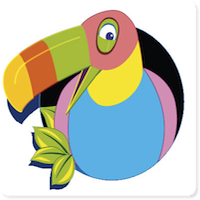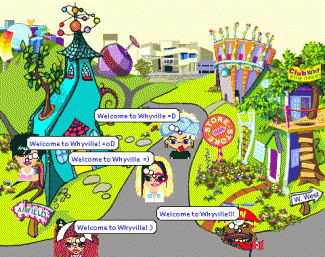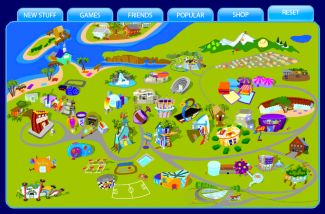DailyBean
LQ: 9.6
Recommended Age: 4+
Skills Used: Self-Awareness, Self-Control, Reading, Writing

WhyVille is a popular “edu-gaming” site designed to allow children and adolescents to interact and learn together. Users create a custom avatar and travel around WhyVille exploring and completing tasks while learning about a variety of topics, playing games while chatting with friends. Users are rewarded in-game currency called “clams” for completing different challenges, which can be used to purchase items for their avatar’s appearance, accessories, cars, and even virtual houses. Lessons range in anything from marine biology, to career path choices, to airplane and computer construction. Lessons are geared to a variety of ages, however, users must employ a fair amount of reading to best utilize WhyVille. With plenty of safety features for social interaction enforced by the website, this game is recommended for any user ages 8 to 13.
Understanding our own actions, thoughts and feelings.
 WhyVille is a social environment that offers games, activities, and learning materials on a large range of subjects. Users can interact with one another and together visit different locations in the virtual town, each containing information and activities relating to a specific subject areas. Through exploring the town, users engage with other users and work with them to complete tasks and play games. The website can be used as a way to meet up with friends online, share interests with others, or work together with classmates to brush up on specific topics for school. From math and reading to history and marine biology the site contains a slew of content for users to jointly explore. This social aspect can help make the learning activities more engaging, while the chat features allow users to communicate and discuss the topics at hand.
WhyVille is a social environment that offers games, activities, and learning materials on a large range of subjects. Users can interact with one another and together visit different locations in the virtual town, each containing information and activities relating to a specific subject areas. Through exploring the town, users engage with other users and work with them to complete tasks and play games. The website can be used as a way to meet up with friends online, share interests with others, or work together with classmates to brush up on specific topics for school. From math and reading to history and marine biology the site contains a slew of content for users to jointly explore. This social aspect can help make the learning activities more engaging, while the chat features allow users to communicate and discuss the topics at hand.
Recalling and retaining information in our mind while working.
WhyVille helps users exercise their Working Memory thinking skill in a number of ways. WhyVille’s virtual town is very large and contains numerous different buildings and locations, each with its own attributes, lessons, and activities. To navigate around WhyVille quickly, users must recall the names and locations of their favorite digital spots. In other cases, users must recall instructions or lessons learned in one location and apply them to a game or activity. For example, in the “Spin Lab,” users must first read the “Lab Manual” which gives tips and suggestions for successfully completing the other activities in the lab. Sometimes the tips include going to another location in WhyVille to read and learn information before returning to apply that information, requiring users to keep information in mind as they explore.
 Users will spend a fair amount of their time on WhyVille reading instructions, learning materials, or chats between different WhyVille residents. On Raven Island, for example, users are tasked with learning about fire safety and awareness. One activity involves reading directions on safely exiting a home during a fire and having a designated family meeting spot in the neighborhood. In other activities, such as the “Career Club” users are given quests to find different jobs meeting specific descriptions. Users read through educational requirements, job summaries, and pay scales learning about over 500 possible career choices.
Users will spend a fair amount of their time on WhyVille reading instructions, learning materials, or chats between different WhyVille residents. On Raven Island, for example, users are tasked with learning about fire safety and awareness. One activity involves reading directions on safely exiting a home during a fire and having a designated family meeting spot in the neighborhood. In other activities, such as the “Career Club” users are given quests to find different jobs meeting specific descriptions. Users read through educational requirements, job summaries, and pay scales learning about over 500 possible career choices.
WhyVille is home to a number of practical mathematic learning opportunities. Users can open their own “bank accounts,” investing their financial resources in interest bearing accounts, savings accounts, and checking accounts. Using the banking activity is an excellent introduction to managing finances for young children. Another activity challenges users to create an efficient and “green” home by selecting building materials and appliances. Users must compare initial prices and estimated savings over time for their selections, meeting a predetermined budget. This activity requires users to calculate the overall value of a wide variety of different construction materials and common household appliances, each with their own financial and environmental ramifications.
All membership plans come with full access to our entire suite of tools learning guides, and resources. Here are a few of the ones we think you’ll like the most: